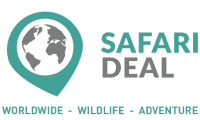Gorilla Tours in Rwanda
For nature enthusiasts and wildlife lovers, Gorilla Tours in Rwanda provide an unmatched opportunity to encounter endangered mountain gorillas in their natural rainforest habitat. This awe-inspiring and humbling experience takes place near Rwanda’s renowned Volcanoes National Park, one of Africa’s top destinations for gorilla safaris. Gorilla Trek from Kigali specializes in creating personalized gorilla trekking tours, ensuring a seamless, comfortable, and unforgettable adventure. With expertly crafted itineraries, travelers can make the most of their Rwanda gorilla trekking journey while contributing to vital conservation efforts. Whether you’re seeking thrilling gorilla tours in Rwanda or an immersive Africa safari experience, Gorilla Trek from Kigali is your trusted partner for remarkable wildlife adventures.
Rwanda Gorilla Trekking Tours
Getting Started with Gorilla Tours in Rwanda
Preparation is essential for gorilla trekking. Gorilla Trek from Kigali supports travelers through every step, from permit acquisition to arranging comfortable transport. Given the limited number of daily permits, early booking is recommended. Gorilla Trek from Kigali assists with obtaining permits, which cost $1,500 per person and directly support conservation.
Volcanoes National Park: The Heart of Gorilla Trekking
Located in Rwanda’s northwestern region, Volcanoes National Park is home to approximately 10 habituated gorilla families. This park offers a range of trekking options for different fitness levels, allowing you to get close to the gorillas and observe their interactions in a safe and sustainable way. Each trek is led by expert guides and trackers who know the terrain and gorilla families, ensuring a smooth and enriching experience. Book for gorilla tours in Rwanda with us.
Gorilla Trekking Permits and Availability
Due to the park’s conservation efforts, only a limited number of gorilla trekking permits are issued each day. Gorilla Trek from Kigali can assist in securing these permits well in advance, ensuring that you won’t miss out. Although the permit fee may seem high, it supports vital gorilla conservation initiatives, park rangers, and local community development.
Typical Gorilla Trekking Itinerary with Gorilla Trek from Kigali
A one-day trek begins early in Kigali, where you’ll be picked up from your hotel and transferred to Volcanoes National Park. After a briefing, the trek takes you through the misty trails of the park to meet one of the gorilla families. For those interested in multi-day experiences, Gorilla Trek from Kigali offers extended tours that include golden monkey tracking and cultural visits to nearby communities.
Packing Essentials for a Gorilla Tours in Rwanda
Comfort is key when embarking on a gorilla trek. Pack sturdy hiking boots, long-sleeved shirts, and waterproof jackets to navigate through sometimes muddy terrain. Sunscreen, insect repellent, and gloves are also recommended, as you may need to grasp onto vegetation for support. Gorilla Trek from Kigali provides guidance on what to bring for a comfortable and enjoyable experience.
What to Expect During a Gorilla Trek
Trekking to see gorillas is a journey through lush forests, where you’ll likely encounter other wildlife and breathtaking scenery. Each trek includes a safety briefing, and your guides will lead you to the gorilla families while providing insights on their behavior and habitat. Once you reach the gorillas, you’ll spend an hour observing their interactions, capturing photos, and appreciating these majestic animals up close.
Contact +250781441853 or info@gorilla trek from kigali.com
FAQs on Gorilla Tours in Rwanda
Is gorilla trekking suitable for families with teenagers?
Yes, as long as each participant is at least 15 years old, families with teens can participate in gorilla trekking.How physically challenging is gorilla trekking?
The trek can vary in difficulty, but guides will match routes to fitness levels. Terrain can be steep, so a moderate level of fitness is recommended.Can I go gorilla trekking as a solo traveler?
Absolutely. Gorilla Trek from Kigali offers group treks that welcome solo travelers, providing a safe, inclusive experience.What does the gorilla trekking package include?
Packages typically include hotel or airport transfers, permit assistance, expert guides, and sometimes additional activities, depending on the tour option.How long does it take to locate gorillas on the trek?
The trek can take 1-4 hours to locate the gorillas, depending on where they are in the forest. Once found, you’ll spend an hour observing them.How much does a gorilla trekking permit cost?
Gorilla trekking permits cost $1,500 per person. This fee supports conservation and community development.What should I wear and bring for the trek?
It’s best to wear sturdy hiking boots, long-sleeved clothing, a waterproof jacket, and bring sunscreen, insect repellent, and water.Is there a best time of year for gorilla trekking?
The dry seasons (June to September and December to February) are ideal for trekking, though gorilla trekking is possible year-round.Are cameras allowed during the trek?
Yes, cameras are allowed, but flash photography is prohibited to avoid disturbing the gorillas.What if it rains on the day of my trek?
Trekking continues rain or shine. The forest can be muddy, so dressing appropriately for wet weather is advised.Can I combine gorilla trekking with other activities?
Yes, Gorilla Trek from Kigali offers additional activities such as golden monkey tracking, cultural tours, and visits to Lake Kivu.Do I need a visa to travel to Rwanda for gorilla trekking?
Most visitors require a visa to enter Rwanda, which can be obtained online. Check Rwanda’s official website for the latest requirements.Is there a refund if I’m unable to see the gorillas?
Refunds are not typically offered as permit fees support conservation. However, the success rate for seeing gorillas is very high.What age restrictions are there for gorilla trekking?
The minimum age for gorilla trekking is 15 years to ensure safety and to respect conservation policies.How does gorilla trekking contribute to conservation?
The permit fees fund essential conservation efforts, including anti-poaching, habitat protection, and supporting local communities.
Gorilla Tours in Rwanda Tips
- All Posts
- Gorillas Trekking Rwanda
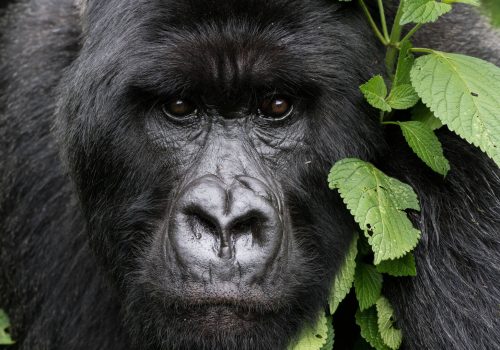
Choosing between Rwanda vs Uganda gorilla trekking – which is better? is one of the biggest decisions travelers face when...
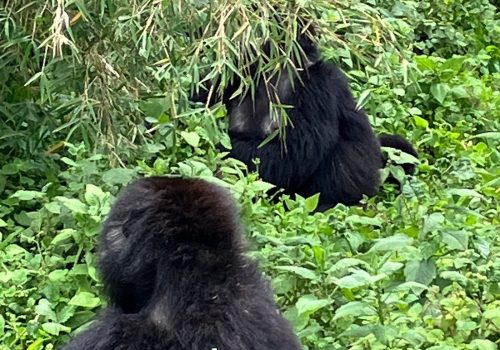
For many travelers, meeting the endangered mountain gorillas is the highlight of a dream safari. But the journey doesn’t end...
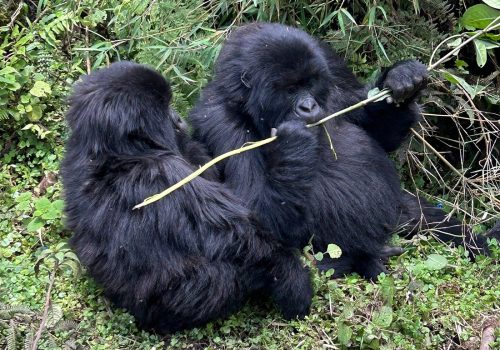
Many travelers planning a trip to Rwanda wonder if gorilla trekking is suitable for older adults, children, or families traveling...
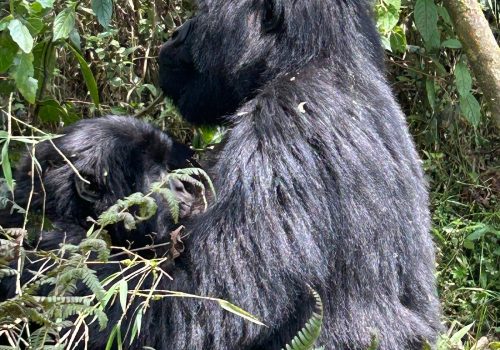
Many first-time travelers planning a safari in Volcanoes National Park often ask the same question: Gorilla Trekking Safety in Rwanda...
A 3 Days Gorilla Trekking Itinerary in Rwanda is one of the most popular and rewarding safari experiences in Africa....
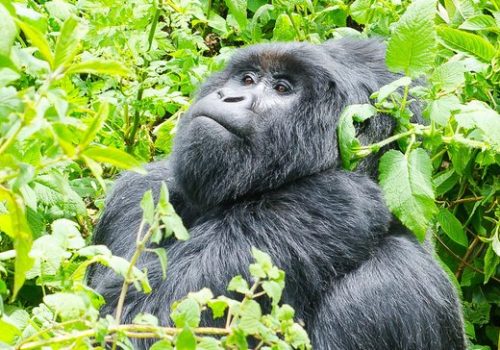
1 Day Gorilla Trekking from Kigali has quickly become one of the most exciting and convenient safari experiences in Africa....






